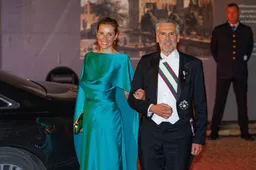
THE HAGUE — Thousands of Dutch citizens rose up Friday in protest against an "imbecilic" official song produced to mark the enthronement of King Willem-Alexander later this month. "I say 'no' to the King's Song," read a petition that appeared online within hours of the much-hyped tune first being played on Friday morning ahead of the April 30 enthronement. "In protest at this imbecilic 'King's Song', I herby resign as a citizen of the Netherlands," read the petition that had at 1500 GMT already been signed by more than 7,000 people in the country of 17 million. The catchy song, written by Dutch-British composer John Ewbank, is an unlikely combination of traditional, rap and choir music. "This song spontaneously turns you into a republican, if you weren't already," said one petition signatory. "I have never heard such a bad song," wrote another. Twitter users were equally scathing of the song, which aims to raise money for charity. "Willem-Alexander's first act as king should be to invite all those involved with the song to a manhunt on royal grounds," read one tweet. "Please can we have better musical education," read another. Others criticised the lyrics, which include the king saying: "I build a dyke with my bare hands and keep the water away." "Through the rain and the wind, I will stay close to you, protect you from whatever may come, watch over you while you sleep, keep you secure as long as I live," the artists on the track sing. The song, which lasts just over five minutes, is performed by 51 Dutch artists, many of them stars in the Netherlands. The plan is for all the artists to come together for a concert in Rotterdam on April 30, which the entire nation is invited to join. The song even led to questions during Dutch Prime Minister Mark Rutte's regular weekly press conference on Friday. "Listen, the song is number one on iTunes, that shows that the song reaches people," Rutte said, after initially failing to identify a version hummed by a journalist.
POPULAIR NIEUWS

9 dingen die katten heel vervelend vinden

Deze 7 signalen wijzen op een moeilijke jeugd

Hoe je opvoeding invloed heeft op de partner die je kiest

Loodgieters zijn 20 minuten bezig bij Eduard en rekenen 3000 euro

"Ik ben stewardess op privejets. Dit maak ik mee"
